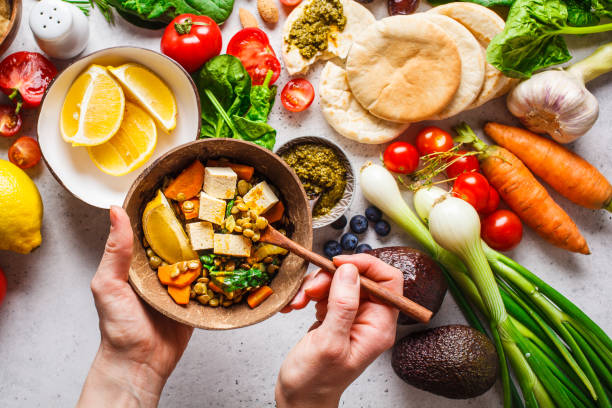
Healthy eating and drinking
Why should I have to eat a balanced diet?
Food choices have significant effects on your overall health. A healthy, balanced diet can help prevent various illnesses and improve current health conditions like diabetes and excessive blood pressure. It reduces the risk of suffering from cardiovascular disease and stroke, and certain types of cancer.
A balanced diet, along with being actively and physically active, is essential for maintaining an ideal body weight. This helps combat or alleviate ailments like osteoporosis and arthritis.
What is a healthy and balanced diet?
It is important to drink plenty of fluids and consume various foods to ensure you’re getting the nutrients and vitamins your body requires. This includes:
- fruits and vegetables and fruits
- Fiber and starch-rich foods
- protein
- dairy products
- Be careful when drinking alcohol but in moderate amounts
What should I eat and drink?
Fruit and Vegetables
Eat five portions of fruits and vegetables daily. A portion includes:
- An apple, banana, pear, orange, or any other similar-sized fruit
- 2 plums or a similar size fruit
- An avocado or grapefruit
- A piece of large fruit such as melon, pineapple
- Three heaped teaspoons of vegetable (raw, cooked, prepared, frozen, or tinned)
- 3. heaped spoons of fruit salad (fresh or preserved in juice) (or stewed or fresh fruit)
- The equivalent of a heaped spoonful of dried fruits like raisins or Apricots
- A salad bowl for dessert
- A cupful of grapes or cherries
Try adding a banana cut into slices to your breakfast cereal, adding fruit with yogurt, eating a salad to accompany your lunch, or eating some fruit for your afternoon treat. Be aware that potatoes aren’t counted as part of your vegetable and fruit consumption.
Fibre and Starch
Adults should eat at least 30g of fiber every day. Foods that are high in fiber and starch should comprise about a third of the foods you consume. These foods also have iron, calcium, and vitamin B and are essential for your well-being. The fiber and starch are present in a variety of foods which include those that are listed below. Select wholegrain or seeded varieties whenever possible (or fermented bread for the health of your digestive tract) because they have higher amounts of nutrients and can aid in the bowel to move more easily:
- Bread (wholegrain, seeds, and fermented)
- Cereals (oats and barley are especially beneficial)
- Rice (brown)
- The potato (with skins are the best)
- Pasta (wholemeal)
The latest research suggests that we need to maintain “good bacteria” in our digestive tract. The fiber helps to safeguard the digestive tract.
Resistant starch is a type of starch which isn’t digested by the small bowel, making it a form of fiber. It is naturally found in foods like bananas, grains, potatoes, and legumes. It’s also incorporated into certain foods. It is a great aid in controlling blood sugar levels.
Protein
Protein can be found in the following foods and should comprise approximately 10 to 15 percent of your food intake:
- Meat
- Fish
- Eggs
- Pulses (peas, beans, lentils, and peas)
- Bean curd, tofu, or
- Soya or plant-based alternatives to meat, such as Quorn
Protein should be consumed every throughout the day, as it assists in strengthening and restoring your body. For instance, it helps heal muscles that are sore or growing fingernails. A lot of these foods include zinc as well as omega 3 fatty acids as well as iron, which are essential to avoid anemia. Plant-based proteins (beans as well as pulses) are affordable and are a great source of protein and fiber, vitamins and minerals.
Red meats and processed meats must be limited to a maximum of 70g per day. This is the equivalent of an ounce of steak that is as big as a deck of cards, three average-sized bacon rashers or ham slices, or one quarter-pounder beef burger.
It is suggested to consume at least two servings (140g cooked weight) of oily, white and shellfish every week. One serving of oily fish is recommended.
Fish oils like mackerel, herring and sardines, trout, salmon, and herring are all high in omega-3 fatty acids, which can help to prevent heart disease. Oily fish also is a great supply of vitamins A and D. Tuna, which is fresh and oily in nature that, is rich in omega-3 fats. When it’s canned, however, the fatty acids in it are decreased to levels comparable to whitefish. Therefore, while canned tuna might be a great option for the majority of people, it’s not considered as an oily fish.
Pulses
Pulses are dry, nutritious seeds that are found in plants that belong to the legume family. Beans, lentils, dry peas, and chickpeas are some of the most popular pulses grown all over the world. The variety of dried and canned pulses comprises Adzuki, kidney, black-eyed beans, and lima.
Pulses are a fantastic source of fiber, protein, Vitamins, and other essential nutrients. They are easy to prepare and highly adaptable. It is a great way to improve your health and lead a more healthy way of life. Increased fiber intake is good for gut health, and research has shown that it connects your well-being and happiness to the health of your gut.
A healthy digestive system ensures that food is digested efficiently to enable your body to absorb and utilize the nutrients you get from your meals. A poor digestion process can cause food to remain for too long within the digestive tract, which causes it to swell and give gas, which can lead to discomforting IBS symptoms such as stomach cramps, bloating and indigestion.

